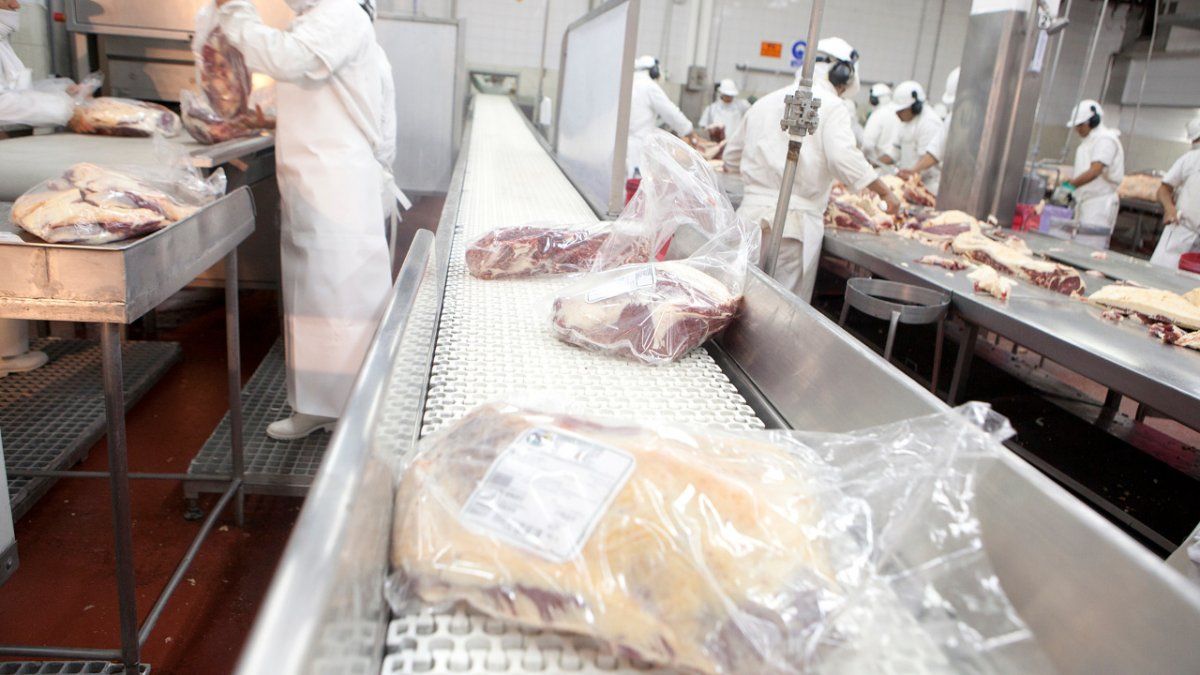beef exports from Argentina grew during the first two months 19.6% with respect to the same period of 2022 until 146,800 tons equivalent to bone-in beef, due to a increased demand from Chinaindicated a report from the RosGan Livestock Market.
Nevertheless, in value shipments registered a decrease of 27% compared to the first two months of last year and were located at US$421.5 million, as consequence of a sharp fall in the prices paid by the Asian giant.
According to the work elaborated by RosGan, “usually the first two months of the year are not periods of high level of shipments for Argentina”, product of a lower demand for merchandise by China due to the festivities of the lunar new year that take place during part of January and February.
However, “This year China continued to buy at a very sustained pace during both months”since the output data from Argentina show purchases for about 55,000 tons per montha 22% more than what was recorded on the same date last year.
“Clearly, China’s beef supply needs are growing,” the paper explained.
According to the latest projections from the United States Department of Agriculture (USDA), the need to import beef would amount to 3.5 million tons this yearwhich “represents the largest number ever recorded by the Asian giant.”
In this sense, the outbreak of African Swine Fever (ASF) mid 2018 somewhat accelerated the change of diet which was slowly developing Chinadue to the need to immediately cover the lack of pork with other sources of animal protein.
With new cases detected in recent months, this trend could worsen and the Chinese giant begin to demand more beef.
Without this scenario being fully embodied yet, the RosGan analyst, Maria Aiassa, estimated that Argentine exports, in the absence of a serious outbreak of the disease, could be around 760,000 tons shipped last year.
“Regarding expectations for the year, a priori and without considering this ASF event in China that could change the scenario, Argentine exports should be similar to last year. The drought has prompted a major treasury outflowand part of that is cows and bulls that are exported,” Aiassa told Télam.
As to priceswhich were located 26% below the average values for July, Aiassa indicated that “in the short term there are no indicators of price improvement“.
“locally, a lot of farm supply will continue to come out that the industry must place, Added to a Brazil once again enabled for China, where in turn, the local market will be highly supplied by pork that is being liquidated. It is not a favorable scenario for the readjustment of values,” said the specialist.
Given the scenario of drought, which the Government considers the worst in history, since the Ministry of Economy announced a series of measures on Monday to try to offset the losses of producers. In the case of ranchersthe deduction will be made in the Income Tax for the forced sale of cattle so that the producers can deduct in the tax balance of the income tax, 100% of the benefits derived from the forced sale of bovine cattle, sheep, goats or pigs.
In the case of the monotax, the monthly obligations corresponding to the tax component whose maturities operate during the period of validity of the state of emergency or agricultural disaster zone will enjoy the benefit.
Source: Ambito




